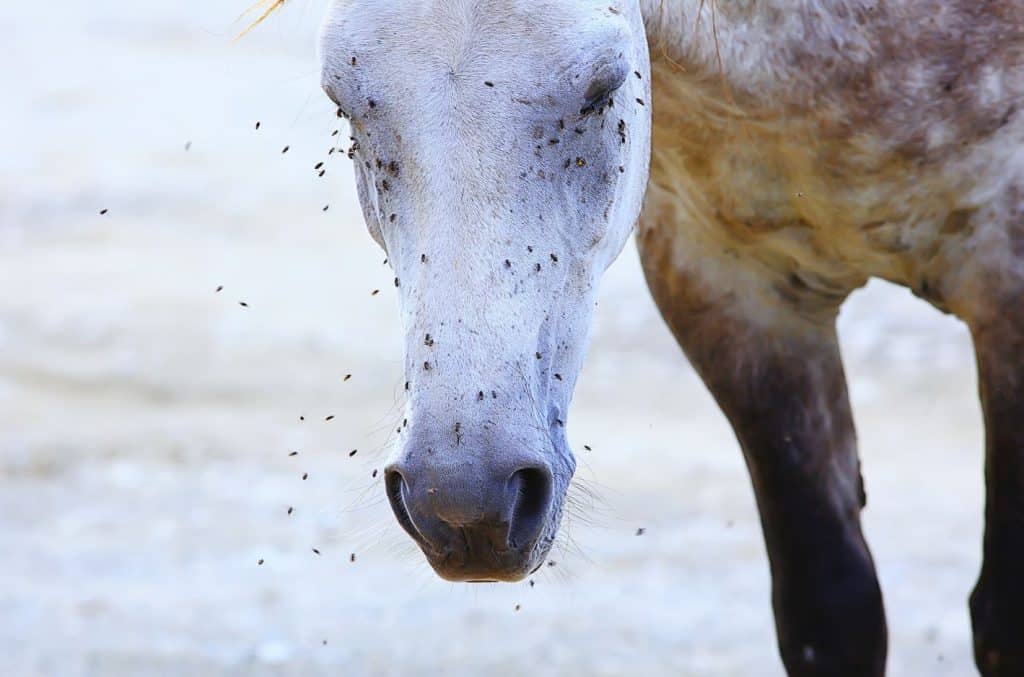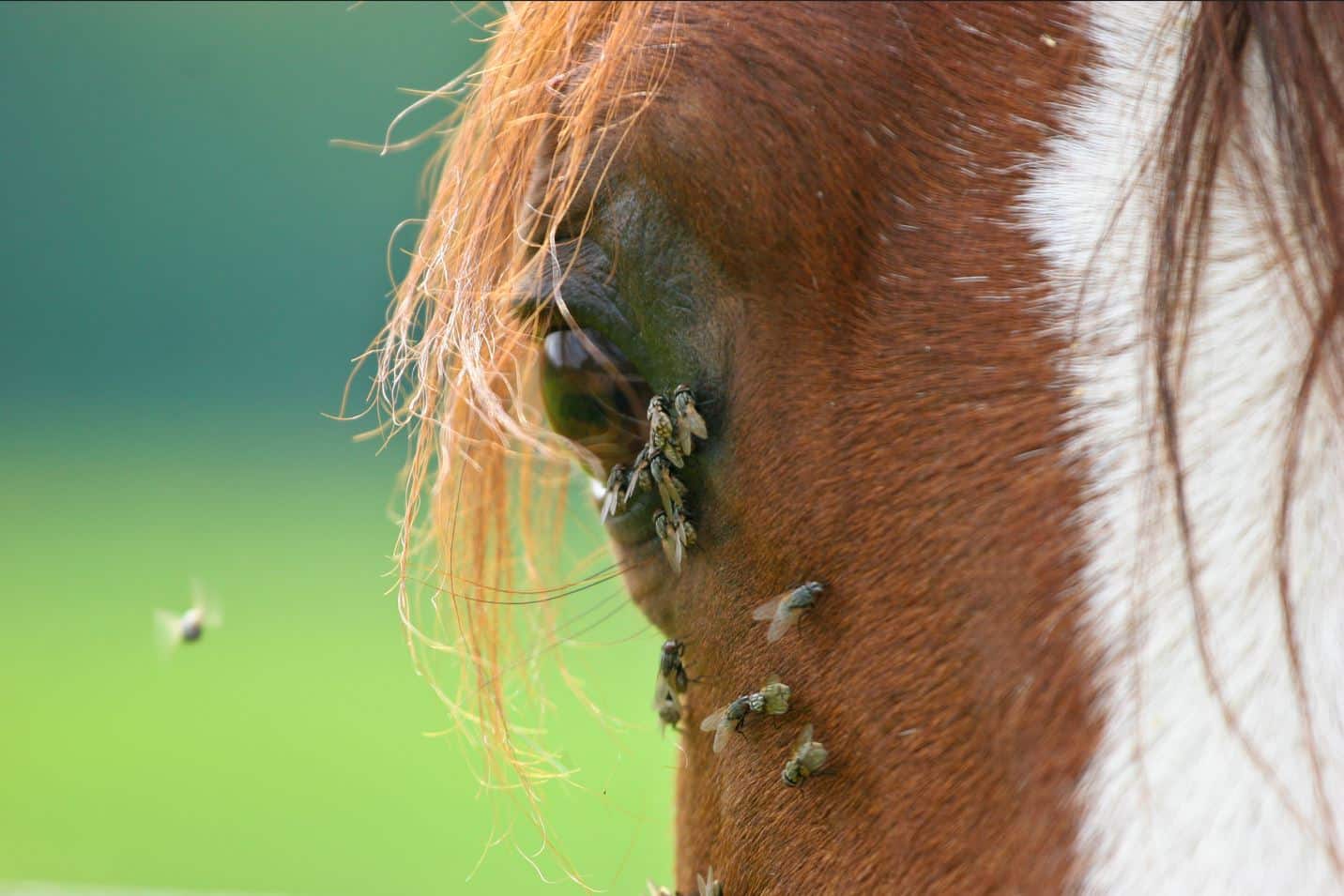Every summer, insects come back, and with them their share of troubles… Flies in particular tend to swarm in the stables and bother horses. Beyond the annoyance they can cause to horses, they can also be the cause of health problems. Here are some tips on how to protect your horse from flies.
What problems can flies cause?
Flies are naturally attracted to horses, especially by their droppings and secretions such as saliva, sweat, tears and nasal secretions.
When flies are present in large numbers, they can cause many annoyances such as:
- a lack of concentration for the horse and/or rider (at work or in competition),
- daily stress for the equines, especially those who are very sensitive,
- infections,
- eye irritation, in some cases going as far as conjunctivitis,
- parasites, especially via fly eggs that can be found on the horses’ limbs. Once ingested, they can turn into larvae and intestinal parasites (gastropod larvae). Therefore, deworm your horse regularly throughout the year.
How to get rid of flies in the stable?
When the weather is nice, don’t hesitate to start a spring cleaning in the stables. Dirt attracts flies, so make your horses’ living space as clean as possible. For example, you can empty the boxes and disinfect them, clean all the feeders to remove all the old rations, sweep the alleys to collect all the pellets that could be on the ground, install closed garbage cans for all the waste (soda cans, food scraps, etc.). Spiders are the natural predators of flies, so feel free to leave a few spider webs in your stables!
As for manure (a great fly’s delight), make sure it is well isolated from the stables. Ideally, you should also collect the manure as often as possible (in the horse stalls, alleys, yards), and pile it up with the manure pile in the stalls or at a good distance from the stables.
You can also install fans. Insects have a hard time flying in drafts, so fans can be a good ally in keeping too many flies out of the stables.
You can also turn to the chemical or natural solution of insecticide sprays. They are sprayed in the living areas of the horses and keep all the insects away. They should be sprayed frequently at first, then less and less often over time. You can also make fly traps with empty plastic bottles and syrup and place them in several places in the stable.

How to protect horses from flies?
To protect your horse while working or grazing, you can use several solutions:
- Fly masks for horses: Available in several forms (with or without a nose guard, with or without ear protection, etc.), fly masks will protect your horse from flies on the head. This can be very useful at work because it will be easier for him to concentrate. But also when grazing if your horse can’t stand being constantly disturbed by insects. The anti-fly mask is very important when grazing, because flies can cause conjunctivitis. These are very painful for the horse and can quickly degenerate. Ideally, if your horse is grazing, you should be able to change the fly mask every day so that his eyes are never in contact with dust, which could also cause irritation. Wash the mask daily to rid it of dust, dirt, grass clippings and other grime.
- Fly repellent blankets for horses: if your horse is very sensitive, there are blankets made of breathable fabric that will allow him to no longer be bothered by the insects.
- Insecticide sprays for horses: you can find some in the shops with natural or chemical compositions. In any case, the anti-fly repellents for horses generally have only a limited life on horses because perspiration eliminates them quickly. You can concoct it yourself with natural products, many tutorials are available on the internet.
- Food supplements: some garlic-based food supplements have a repulsive action against insects. You can find them in the trade at some brands of horse feed.



